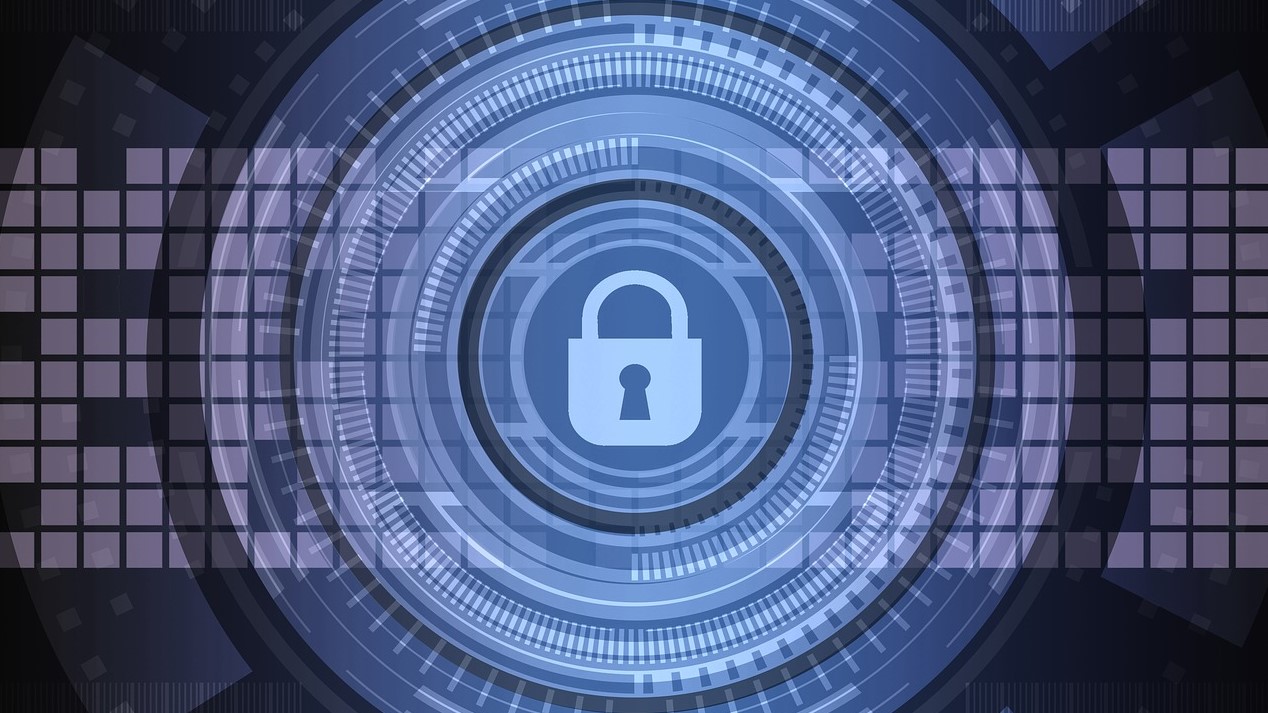Cybersecurity: The latest news and statistics
Your hub for all the latest developments in the world of cybersecurity.

In our increasingly digital world, cyberattacks are a daily risk for businesses and consumers alike.
While installing an antivirus is an essential first step for staying safe online in 2019, being informed regarding the latest cyberattacks will ensure that you’re prepared for when not if the next attack comes.
We’ve compiled a collection of recent security headlines and statistics to keep you up to date with the latest developments. The list will be regularly updated, so be sure to check back often.
Got an addition for us? Contact mike.moore@futurenet.com
- We've also highlighted the best antivirus of 2019

"A third of CISOs feel under pressure as they cannot consume cybercrime intelligence easily or effectively"
To better understand how Chief Information Security Officers (CISOs) view cybersecurity and the problems they face, Kaspersky Lab surveyed 250 security directors from around the world. The firm found that almost one third of the CISOs it surveyed feel that they can not consume cybercrime intelligence easily or effectively which is why the company has launched a new free threat intelligence tool called Kaspersky CyberTrace. The tool aggregates and evaluates disconnected data feeds to help identify what threats pose a danger to an organisation.


"88% of UK organisations reported suffering a data breach in the last 12 months"
The tactics used by cybercriminals have grown more advanced and as a result, organisations in the UK reported a rise in breaches during 2018. New research from Carbon Black has revealed that 88% of UK organisations suffered a data breach in the last 12 months. The firm's second UK Threat Report delves into why organisations are experiencing more breaches and how threat hunting is being used to mitigate their effects.
Are you a pro? Subscribe to our newsletter
Sign up to the TechRadar Pro newsletter to get all the top news, opinion, features and guidance your business needs to succeed!

"Account takeover-based (ATO) attacks now compromise 20 percent of advanced email attacks"
Cybercriminals are always on the lookout for new ways to bypass email filters as they try to deliver their malicious payloads successfully. According to new research from Agari, account takeover-based (ATO) attacks have grown in popularity because of the fact that they are more difficult to detect than traditional attacks. Victims are also more likely to open these emails because they are sent from a real sender's email account.

"55 percent of PC applications are out-of-date"
While being constantly reminded to update to the latest version of a program can be annoying, software makers usually have your best interest in mind and security updates are often bundled alongside improvements to their apps. New research from Avast has revealed that 55 per cent of the PC applications installed worldwide are out-of-date. This puts users at risk of hackers exploiting vulnerabilities in their software and could lead to sensitive data being stolen from their systems.


"Cybercrime could cost companies $5.2 trillion over the next five years"
Businesses are unprepared to deal with the consequences of cybercrime and it could end up costing them quite a lot. New research from Accenture has revealed that cybercrime could cost companies $5.2tn over the next five years unless significant improvements to internet security are made. The firm surveyed over 1,700 CEOs and C-suite executives to compile its new Securing the Digital Economy: Reinventing the Internet for Trust report which highlights the need for improved cybersecurity to deal with today's evolving cyber threats.

"The average cost of a cyberattack now exceeds $1.6m"
Cyberattacks have grown more effective and they have also become more costly to mitigate according to new research from Radware. The firm's 2018-2019 Global Application and Network Security Report has revealed that the average cost of a cyberattack has risen to $1.67m with organisations citing operational/productivity loss and negative customer experience as the top consequences of suffering an attack.


"Banking Trojans represented 25 per cent of all attacks aimed at enterprises during Q2/Q3, up from 16.7 per cent in Q1"
The enterprise is often a target of hackers due to the vast amounts of financial data most large companies store and new research from Morphisec has discovered that Trojans were cybercriminals attack method of choice when going after large firms. The company's December 2018 Morphisec Labs Threat Report analysed cyberattack trends from the second half of 2018 to reveal that Trojans represented 25 per cent of all attacks aimed at enterprises during Q2 and Q3.

"480 new threats per minute discovered in Q3 2018"
The tactics of cybercriminals are constantly evolving as they look for new ways to avoid detection and McAfee Labs saw an average of 480 new threats per minute during the third quarter of 2018. The security firm also detected a sharp increase in malware targeting vulnerable IoT devices.

"17 per cent of shoppers do nothing to protect their data while shopping online"
While two thirds of retailers increased their cybersecurity measures to defend against the rise in social engineering attacks, new research from Infoblox Inc. has revealed that 17 per cent of shoppers did nothing to protect their data while shopping online. The company surveyed 3,000 consumers and retail IT professionals in the UK, Germany, Benelux and the US on their attitudes towards online data privacy and security while online shopping during the holidays.


"Spam was the most common method for cybercriminals to spread malware in 2018, accounting for 9 out of 10 infection attempts throughout the year"
Despite constant warnings to not open emails from unknown recipients, users still click on spam emails and new research from F-Secure has revealed that spam accounted for 9 out of 10 infection attempts this year. These spam campaigns often use email spoofing delivery notifications or online purchase invoices to trick users into clicking on their malicious links.

"44 per cent of UK consumers will stop spending with a company if they are involved in a data breach"
Falling victim to a data breach can have serious negative consequences for a business including loss of revenue as well as loss of consumer trust. New research from PCI Pal has revealed that 44 per cent of UK consumers will stop spending with a business or brand for several months following a serious data breach. An additional 41 per cent of consumers will never return to a business or brand post-breach.


"Only 20% of IBM mainframe customers are using multi-factor authentication"
Multi-factor authentication (MFA) is now available to control access to mainframe applications. However, new research from Macro 4 has revealed that only 20 per cent of the 81 mainframe users it surveyed acknowledge that their organisation is using MFA or plans to do so in the future.

"30 per cent of enterprises with 1,000+ employees are currently using AI-powered security solutions with this number expected to grow to more than 60 per cent by 2020"
As AI becomes more advanced, large enterprises have begun to use AI-powered security solutions to help protect their business from today's growing cyber threats. Spiceworks' 2019 State of Future Workplace Tech report surveyed 780 respondents based in North America and Europe to learn more about which emerging security solutions businesses have adopted and plan to adopt over the course of the next two years.

"59 per cent of companies say they have experienced a data breach caused by one of their vendors or third parties"
Third parties are one of the fastest growing risks to an organisation's sensitive data according to new research from Opus and the Ponemon Institute. The third annual Ponemon Institute "Data Risk in the Third-Party Ecosystem" study surveyed over 1,000 CISOs and other security and risk professionals across the US and UK to better understand the challenges faced by companies trying to protect sensitive and confidential information shared with third-party vendors and partners.


"Annual online payment fraud losses from e-commerce, airline ticketing, money transfer and banking services, will reach $48bn by 2023; up from the $22bn in losses projected for 2018"
Payment fraud is growing online and a new study from Juniper Research claims that data breaches resulting in the theft of sensitive personal information are partly to blame. Cybercriminals are using the credentials gleaned from these breaches to create new synthetic identities that go beyond pure identity theft.

"The average ransomware attack is 10 times more costly to a business than the ransom itself"
Ransomware is the most significant threat to SMBs according to new research from Datto Inc. The firm surveyed 2,400 MSPs to compile its third annual Global State of the Channel Ransomware Report which revealed that revenue lost to downtime from a ransomware attack can cripple a small business. Datto also found that antivirus software solutions are ineffective with 85 per cent of MSPs reporting that ransomware victims had antivirus software installed.

"67 per cent of SMBs have experienced a cyber attack and 58 per cent have experienced a data breach in the last 12 months"
Small businesses increasingly face the same cybersecurity risks as larger companies according to the results of Ponemon Institute's latest study sponsored by Keeper Security, The 2018 Cybersecurity in Small and Medium Size Businesses. Ponemon Institute interviewed 1,045 IT and IT security practitioners from the US and UK to compile its study.


"70% of UK consumers do not think companies are doing enough to protect personal data online during Black Friday"
A new survey from cybersecurity specialist Radware has revealed that a lack of trust in online retail security will cause 45 per cent of UK shoppers to avoid online deals with 32 per cent of the 500 adults surveyed opting to visit a physical store instead. Additionally, 70 per cent of UK consumers do not think that companies are doing enough to protect their personal data online during Black Friday.
Check out the infographic here

"Phishing scams accounted for 50 per cent of all fraud attacks in Q3 2018"
Network security company RSA has revealed that phishing scams accounted for 50 per cent of all fraud attacks during Q3 2018. The firm's Q3 Fraud Report also highlights how vishing or voice phishing is gaining popularity amongst cybercriminals that have set up their own fake sites to get their victims to call them instead of the other way around.


"Over 137 million phishing attempts were detected during Q3 2018"
Phishing attacks grew in popularity last year and the trend is continuing in a big way this year with Kaspersky Lab revealing in its 'Spam and phishing in Q3 2018' report that 137,382,124 attempts to visit phishing sites were detected in the third quarter of this year.

"34% of businesses would consider paying a ransom to cyber criminals, rather than invest more in cybersecurity"
Many organisations are stuck in a reactive mindset when it comes to cybersecurity and NTT Security surveyed senior executives from non-IT functions in 12 countries to examine their attitudes on risk and the value of information security.

"Cyberattacks against businesses rise 55 per cent during last three months"
While the first half of 2018 was relatively uneventful in terms of cyberattacks, Malwarebytes identified a 55 per cent increase during the last three months as cybercriminals increased the number as well as the severity of their attacks. This includes a major rise in the number of ransomware attacks carried out as well as an 84 per cent increase in banking trojans compared to the previous quarter...

"One in six businesses unprepared for data breaches"
A significant portion of organisations are ill-prepared for the event of a cyberattack and four in ten have gone through such an event in the last 12 months according to a report by BSI’s Cybersecurity and Information Resilience division...

"4.5bn files compromised in first half of 2018"
New data from Gemalto found that 4.5 billion records were compromised during the first half of 2018 as businesses were busy preparing for GDPR to go into effect. The US was hit the hardest with 3.25bn of breached data entries while the UK was the highest country in Europe with 22 data incidents during the first half of 2018...

"Two thirds of German manufacturers have fallen victim to a cyberattack"
A survey published by Bitkom found that two thirds of the country’s manufacturers have fallen victim to a cyberattack costing Europe’s largest economy around $50bn. A third of the companies reported having their employees phones stolen while a quarter said they had lost sensitive data...

"Quarter of cyberattacks hit ordinary users"
Research from Positive Technologies revealed that cyberattacks increased by 47 per cent during Q2 2018. Data theft has grown in popularity as hackers move away from mass campaigns with personal data (30 per cent) and credentials (22 per cent) being the most attractive targets...

CipherTrace: Almost $1 billion in cryptocurrency was stolen in 2018
Cryptocurrency thefts have risen to almost $1 billion over the course of 2018 according to a study by cybersecurity firm CipherTrace. The majority of thefts come from cryptocurrencies and trading platforms being hacked, with smaller, more frequent attacks becoming increasingly common...

"Worldwide AI investment to top $200bn by 2025"
A new report from KPMG estimates that investment in AI, along with machine learning and robotic process automation (RPA) technology, is set to reach $232bn by 2025. This is a significant increase from the $12.4bn spen today as more and more organisations adopt AI in their business...

- Be more secure online with the best password manager.
After working with the TechRadar Pro team for the last several years, Anthony is now the security and networking editor at Tom’s Guide where he covers everything from data breaches and ransomware gangs to the best way to cover your whole home or business with Wi-Fi. When not writing, you can find him tinkering with PCs and game consoles, managing cables and upgrading his smart home.
